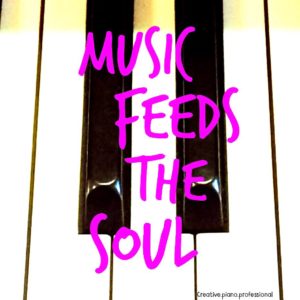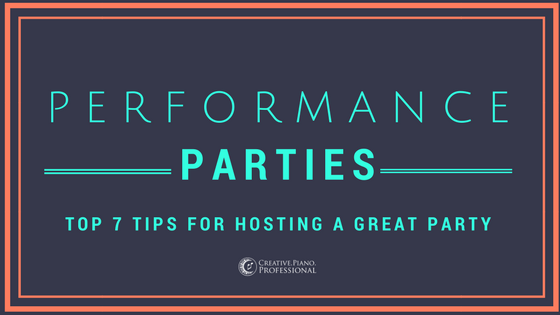This weekend we are hosting a performance party at my home studio. It is the first performance opportunity this year for our students.
I started these parties about 18 months ago and we now do three a year. At first it took a little while to get students into the swing of things but now they are very popular.
Students arrive and bring with them a plate of afternoon tea to share. We have some board games set up and they quickly get into playing these as everyone arrives. It is a great icebreaker and we have found the best games are those that are quick and simple. Games like Trouble, Operation, Jenga and Uno for the older kids are very popular and work well in this setting.
Prior to the party I ask some of the older students if they would be my helpers and be in charge of a game each. The benefit of this is two fold. Firstly, the teenage students have purpose when they walk in and they have buy-in to the process so they will attend. Secondly, it means each of the games is being supervised by someone other than me, which leaves me free to supervise everything else!
After about half an hour, students begin playing their pieces. It is very relaxed and everyone sits around and listens. It is a great, very informal way of them playing in front of other people. As needed we stop for food breaks, game breaks and then more music.
Parents get a chance to chat in the kitchen and have a coffee and the kids get to know a community of other musicians.
In total (from set up to pack up) the parties take two hours.
The atmosphere is always a little hesitant at first and then everyone warms up and has a great time. I’ve found that more parties we have, the better everyone gets to know each other and has better interaction.
This weekend I’m expecting around 20 students. It will be interesting to see how it all kicks off for the year!
Top tips for hosting a great performance party:
- Make it quite relaxed and informal- students get plenty of other chances to do formal performances.
- Ask each student to bring food to share.
- Have icebreaker games available such as board games or small group games.
- Ask older students to be responsible for supervising a game.
- Have something for parents to do if they wish to stay (try coffee in the kitchen).
- Be specific with a short time frame for the party (this makes it easy to fit in and will maintain your sanity).
- Decide on a rough structure for the party. My choice is usually games, music, food, music, games.
I find these parties quite enjoyable. It is great to see them developing friendships and gaining more performance confidence.
Do you offer informal performance opportunities or a mix of different performances?




some simple but very effective ideas here
Great Ideas. This year I’ve just started doing informal home concerts, but good idea to make it a party. My big question is do you charge? for the first one it was free and only 2 people showed up. This time I’m taking $5 performance deposits just so they have a reason to come. What are your thoughts on costs?
Thanks Jessica! Awhile ago we did charge $5 per student. Now we have changed to having an annual enrolment fee that covers all of our performance opportunities.
Thats a cool idea. Do you just have the 5 oppourtunities? (2 annual main concerts and the 3 parties?) what’s your annual fee if you don’t mind me asking? Currently I just charge the lesson rate plus a $15 termly admin fee as I do custom lesson plans week to week. my main concerts are $10-$215 for performer entry and the $5 for the smaller at home stuff, but I like the idea of an overarching yearly concert fee.
There are 8 opportunities Jessica.
A yearly fee depends what you want to include. You could break it down into the term fee as you already charge that. It needs to cover the costs you have associated with the time you spend and facilities you use for events.
That is different for everyone.
That’s true. What we’ve been charging for so far certainly hasn’t included our time; just covers a bit of venue hire. around a third of the students don’t currently choose to perform in the concerts or utilize performance opportunities, so perhaps if I charged the fee to all they would feel more inclined to do so? or on the flip side they could feel they are being ripped off. That’s a tough one.
I’ve also had a few parents complain about and question the fact that there is even an admin fee at all, saying that other places don’t have them, though I think more and more places are doing it nowadays, and it’s time to embrace the change.